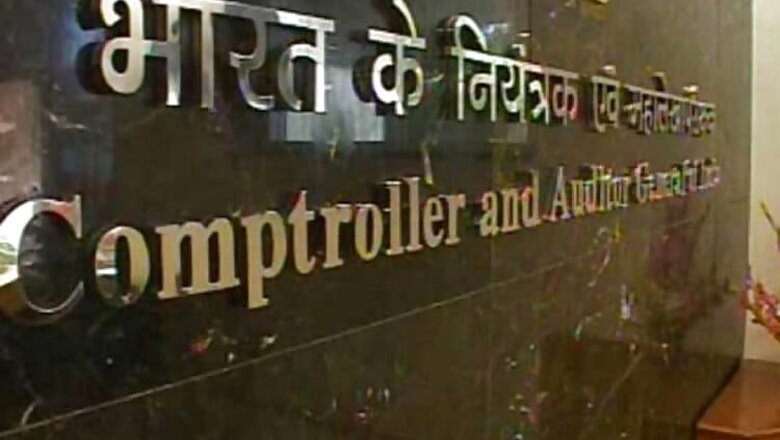
views
New Delhi: As government prepares ground for roll-out of GST from July 1, CAG has demanded explicit provision in the law to empower the official auditor to call for any information for audit of Goods and Service Tax (GST) receipts and utilisation of their funds.
While the Comptroller and Auditor General of India (CAG) by law audit any receipts in the Consolidated Funds of India, the GST Council is not in favour of giving powers to the official auditor under the new GST law to call for information outside of the GST tax receipt for audit.
The GST Council, headed by Union Finance Minister Arun Jaitley and comprising representatives of all states, had in its meeting last month decided to keep out a provision from the Draft Model GST Law giving CAG powers to call for any other information for audit.
Official sources said CAG Shashi Kant Sharma met Jaitley after the December 11 meeting of the GST Council to seek a modification in the draft law to include the word "any information" can be sought by auditors to facilitate audit.
Section 16 of the CAG Act mandates the auditor to conduct audits of the receipts of governments, giving it no discretion in the matter.
"It shall be the duty of CAG to audit all receipts which are payable into the Consolidated Fund of India and of each state and of each UT having a legislative assembly and to satisfy himself that the rules and procedures in that behalf are designed to secure an effective check on the assessment, collection and proper allocation of revenue and are being duly observed and to make for this purpose such examination of the accounts as he thinks fit and report thereon," the Section reads.
Section 18 of the same Act provides that CAG the authority to require "any accounts, books, papers and other documents which deal with or form the basis of or otherwise relevant to the transactions to which his duties in respect of audit extend, shall be sent to such place as he may appoint for his inspection."
Sources said the two sections read together provide CAG access to records of an assessee.
Section 65 of the draft model GST law provides for power of CAG to call for information for audit. The section as it exists, provides that revenue officer would make available to the CAG "information, records and returns required for conduct of audit."
Sources said CAG is of the opinion that it was important to provide enabling powers to departmental officers in the GST law to call for any other information to facilitate the audit.
It felt that otherwise an assessee may legally challenge the calling for additional information for CAG audit, they said.
The modified Section 65 of model GST law as suggested by the CAG states: "The proper officer shall, upon request made in this behalf, make available to the CAG or an officer authorised by him, information, records, and returns furnished under the Act and such other information as required for conduct of audit as required under the CAG's DPC Act".
The CAG's DPC (Duties, Powers and Conditions of Service) Act provides that "it shall be the duty of the CAG to audit all receipts payable into the consolidated fund and to satisfy himself that the rules and procedures in relation receipts into the consolidates fund of India are designed to secure an effective check on the assessment, collection and proper allocation of revenue and are being duly observed".
The government auditor was of the view that it is essential to check the accounts and records of assessees that form the basis for tax assessment.
It said that CAG's (DPC) Act gives it the authority to access the "records of an assessee".
The GST Council in its sixth meeting on December 11, 2016 was, however, not in favour of keeping the provision in the GST law.
The GST Council, headed by Jaitley and having state representatives as members, have already agreed on CAG conducting an audit of tax receipts in the first five years to ascertain the amount of compensation to be paid to the states.
The Council in its earlier meetings had said the Centre would compensate states for any revenue loss arising out of
GST implementation for the first five years.
The base year for calculating the revenue of a state has been kept at 2015-16 and a 14 per cent growth rate has been envisaged for calculating the likely revenue of each state in the first five years of implementation of GST.
Post demonetisation, however, more states have expressed concerns of revenue loss and hence the compensation amount to be paid by Centre could go up.



















Comments
0 comment